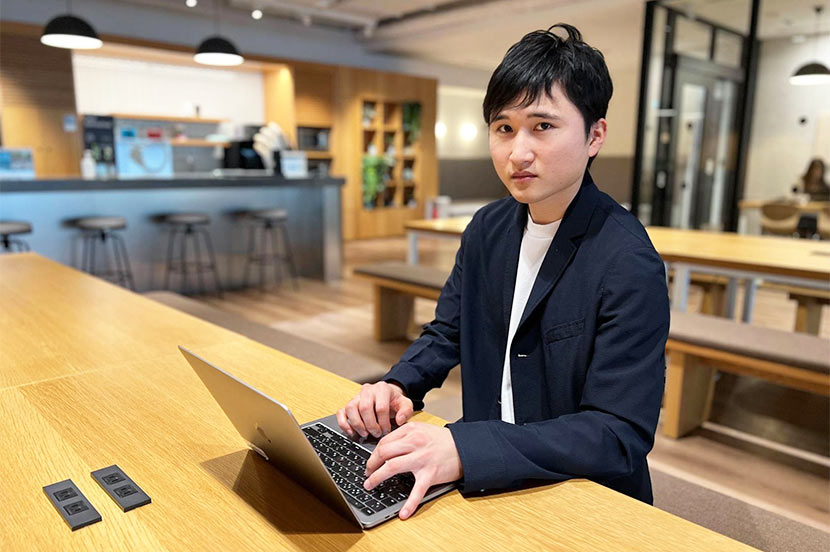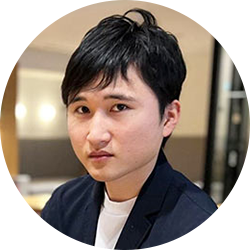
Ginga Miyata, an engineer at SoftBank Corp. (TOKYO: 9434), was selected for the 2023 Japan AWS Jr. Champions, a program that chooses young engineers in their first to third working year who have demonstrated a certain degree of technical skill. Miyata, during his third year at SoftBank, also received the 2023 Japan AWS All Certifications Engineers award, which was awarded to individuals who earned 12 AWS certifications. Among AWS Partner Network (APN) participants, only 17 people in Japan, including Miyata, have achieved the honor of scoring both accolades.
Miyata talked about his journey to receive these accolades and his philosophy as a software engineer who balances work and studies to get certifications.

Ginga Miyata
DevOps Section 3
Service Development Department
Enterprise Cloud Development Division 3
Unified Cloud & Platform Division under the Technology Unit
Miyata joined SoftBank in 2021. His roles include developing Managed Service Provider (MSP) services that cover cloud implementation to operation, and maintenance, monitoring, and utilization for enterprise customers. He also worked on developing AI-powered fault detection tools, apps combining VR and blockchain (for which a patent has been applied for), and a web-based generative AI chat app (Generative AI package). His organization's mission is to provide solutions and platforms that help clients insource system development and facilitate smooth implementation and utilization.
Lauded for practical experience
Amazon Web Services (AWS), a broadly adopted cloud computing service, initiated its award program to expand opportunities for young engineers by recognizing the technical challenges they undertake, encouraging their active participation in AWS communities, and recognizing their contributions based on their results. The 2023 Japan AWS All Certifications Engineers award was granted to 579 individuals in Japan, and among them, only 17 were also selected for the newly established 2023 Japan AWS Jr. Champions category.
Miyata acquired practical knowledge on AWS by studying it and completing internships at seven companies during his university years. After joining SoftBank in 2021, he continued to work on MSP service development and study for certifications. His active external communications and participation in both internal and external events led to his winning a double honor in April 2023.

Congratulations on your double win. What did you do to achieve this recognition?
Being chosen as a Junior Champion involves not only acquiring technical skills through certifications but also through influencing others. Since joining SoftBank, I’ve been actively sharing information at events, both internally and externally. Presenting at the "SoftBank Tech Night Fes 2023" event and speaking at a young engineers' community forum called "Techshiba" about developments such as patented AI-powered fault detection tools and Infrastructure as Code (IaC), as well as developing apps using the Azure OpenAI Starter Package, were part of my contributions. My technical blogs about AWS and active external communications were among the efforts that were recognized.
Regarding the 12 certifications, I acquired my first AWS certification in July of my first year at SoftBank. It took me about a year and a half to earn all 12 certifications.
Wow, that’s impressive.
Words of advice I received from my new recruit training - “study to be a leader before you become one” - resonated with me. I believe it's more enjoyable and effective to work with existing knowledge than to start from scratch. My senior colleagues also played a role with their words of encouragement. I decided to aim for the 12 certifications around October 2022. Already holding half by then, I was motivated by a desire to have a systematic understanding of what I’d been doing in my job.

Doing your work while studying for the certifications must have been challenging. How did you stay motivated?
During my graduate school days, I’d been developing services using AWS, and I wanted to validate the efforts I made then. Seeing my name on the website was rewarding, and as there had been SoftBank employees who received the 12 certifications before, it was also about making a statement for SoftBank. The company's support for certification, such as offering incentives beyond the examination fees, was a major motivation.
For the AWS Japan Jr. Champion award, the fact that it was a new award in which one could only apply for within three years after joining a company, and the encouragement I received from a department manager, to apply were also motivating factors. Participating in the inaugural award program was a thrill.

Supplementary prizes featuring mascots of the 12 AWS certifications on hoodies, T-shirts, and tumblers
Life as an Intern at Seven Companies and Developing Apps as a Hobby
What did you do during your student days?
At high school I was in the track and field club, training six days a week, and I even competed in the Inter-High School Championships. My major was in mechanical engineering, where I conducted research using AI with sensor data to predict what actions people were performing. Although my focus was on mechanical engineering, my interests leaned more toward the computational side rather than physical machinery. I wanted to make things move, and this led me to pursue graduate studies.
During my time at graduate school, I was part of a lab that focused on medical robotics, researching operational interfaces that don't require hands or feet. For example, we looked at using facial movements, such as eyebrow or mouth movements, to move a mouse, which was a novel area globally with few people working on it at the time. I'm still grateful to my professor who proposed the idea and guided me to such an innovative research area.
Why did you focus on this type of research?
I heard from my professor at the beginning of my graduate studies about the need for doctors to operate medical devices during surgery without using their hands or feet. It made me think about using other parts of the body for such tasks. The idea to use facial movements came to me during an internship at a major food tech company where I was developing iOS applications. When people cook while looking at recipes or videos, their hands are usually occupied, which sparked the idea of finding a way to manage devices hands-free.
You mentioned completing internships at a total of seven companies.
I did short-term software engineering internships at five companies, each lasting about a month, a six-month long internship at another company, and a two-year long internship at another one. My first encounter with AWS was during an internship at a major human resources company, so in hindsight, I was gaining practical experience even before I began acquiring academic knowledge.
It seems you got a lot of practical experience during your student years!
I sometimes think that if it weren't for my experiences as a student, I might not have been selected for these awards. Additionally, as a hobby, I developed and released an Android app that registered 10,000 downloads. At the time, I used the cloud for data storage and user management.

What impact have your certifications and the double award had on those around you?
Other team members rely on me more now and I’ve been approached by others more within the company. Gaining confidence by studying AWS, I told my boss to give me more AWS tasks and this led to an increase in my handling of AWS-related inquiries and tasks. This has transformed my knowledge from being just about certifications to something that can be applied to my work, creating a beneficial input and output cycle. I'm very grateful to my boss for helping me to realize the vision I have in mind.
Aiming to make services famous from a “pilot's” perspective
What motivated you to join SoftBank?
The excitement from seeing SoftBank's solutions that combine the latest technologies like virtual reality (VR), mixed reality (MR) and AI with sports, such as watching basketball games in VR, was a big draw. I enjoy getting feedback from users on actual applications, and I wanted to be involved in creating things that are used in daily life. For me, that was possible in the world of applications and programming. The more users there are, the more opportunities and fun it becomes.
Most services around us are built on the cloud, so knowledge of the cloud is absolutely necessary to provide services using the latest technologies. Since joining SoftBank, my knowledge and experience have significantly increased, allowing me to make proactive suggestions and improve work efficiency, which I find enjoyable.
It seems you place a lot of value on having fun with your work. What kind of career do you aspire to have in the future?
My aim is to be a leading engineer who, while being confident in myself, can flexibly incorporate the situations and ideas of team members, while developing services. Like a pilot, I want to accurately navigate the team toward the destination of the value we want to create through our services. Moving forward, I want to further promote SoftBank's technical capabilities externally. I also want to develop services not just for Japan, but ones that are also viable globally.

(Posted on May 20, 2024, Original article posted on January 24, 2024)
by SoftBank News Editors


